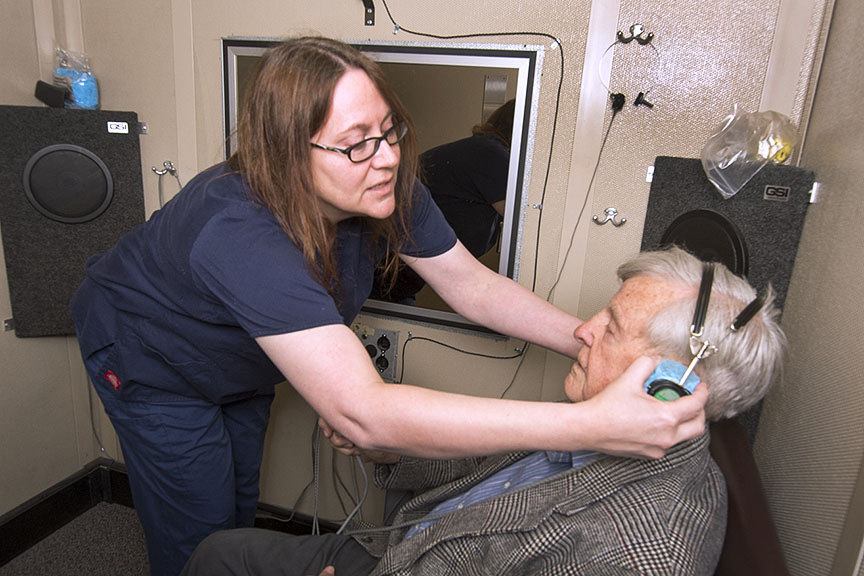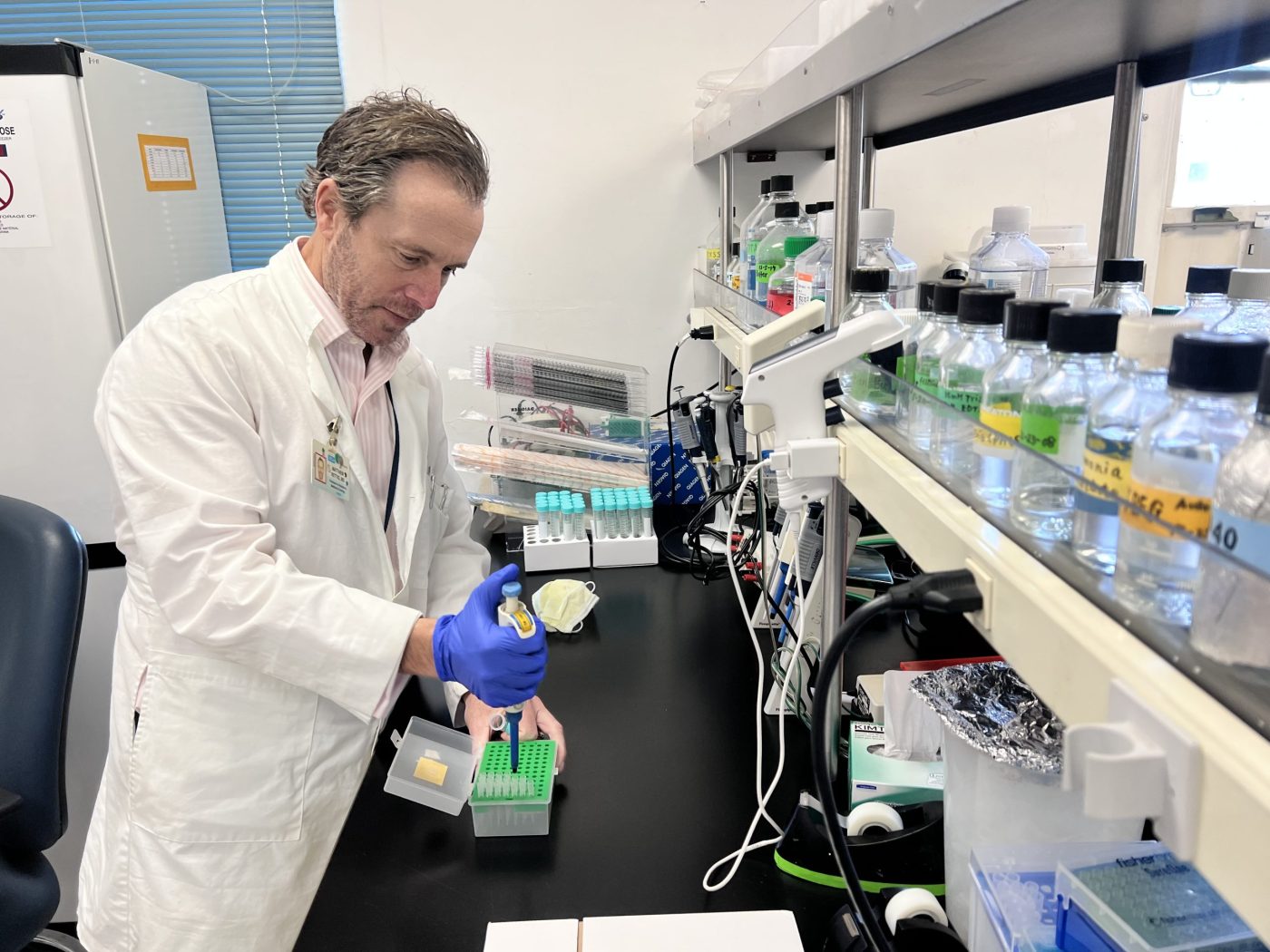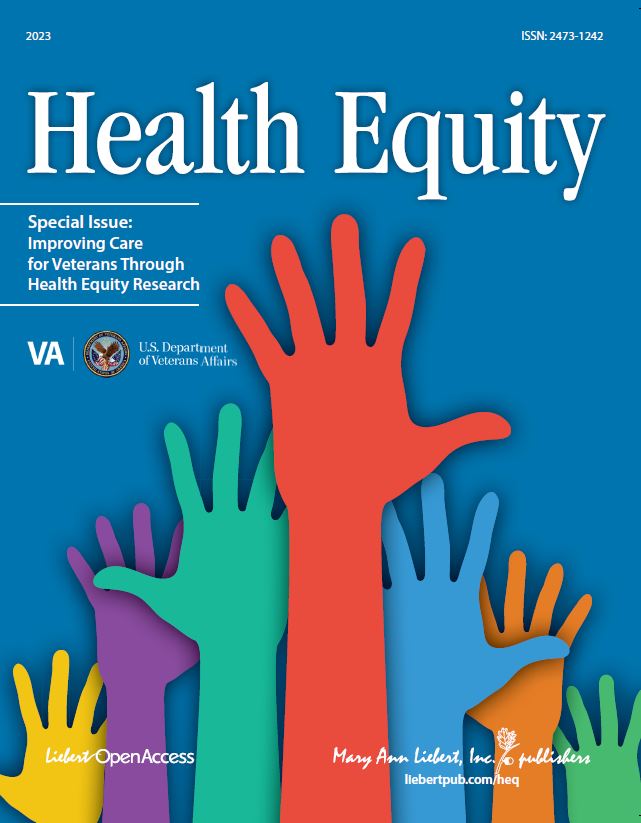Hearing loss, including tinnitus, which is a ringing, buzzing or other type of noise that originates in the head, is the most prevalent service-connected disability among Veterans, with many Veterans suffering from a form of it due to frequent exposure to loud noises from weaponry and aircraft. Because of the pervasiveness of hearing loss among Veterans, VA is recognizing October as Audiology Awareness Month by highlighting important VA research on the subject and advances made in treating Veterans with hearing loss.
“VA researchers have a rich history of contributions to audiology,” said VA Under Secretary for Health Dr. David J. Shulkin. “From working with the National Institutes of Health to develop and evaluate hearing aids to a comprehensive protocol for managing tinnitus at VA and other audiology clinics nationwide, VA is proud to be a leader in this field.”
VA researchers conduct a wide range of studies in audiology—from biomedical investigations to large clinical trials and epidemiologic database studies. Much of the work takes place at VA’s National Center for Rehabilitative Auditory Research in Portland, Oregon, one of the world’s leading facilities for research in the field. Studies include older Veterans whose hearing problems have been compounded by aging and younger Veterans who may have suffered hearing loss as a result of blasts in Iraq or Afghanistan.
Recent VA research includes the following:
- In 2013, researchers at the VA Puget Sound Health Care System published the results of a study comparing group and individual visits for hearing aid fittings and follow up. The team found no differences in how well the hearing aids performed, or how often they were worn. They concluded that group visits could reduce costs while providing community support for patients.
- In 2014, VA researchers in Loma Linda, California, linked exposure to jet propulsion fuel with auditory processing problems—changes that occur inside the brain rather than the ear.
- A 2015 VA study yielded promising results on transcranial magnetic stimulation as a tinnitus treatment. The therapy involves holding a magnetic coil to the head. The team now hopes to conduct a larger trial.
- A 2016 study of nearly 200 Veterans with tinnitus explored the impact of Post-Traumatic Stress Disorder (PTSD) on how Veterans manage the hearing condition, and offered guidance for clinicians.
Below are a few examples of ongoing studies:
- VA researchers in Pittsburgh, Sioux Falls, Omaha, and Portland are collecting data from nearly 470 Veterans to learn more about auditory complaints in those who have been exposed to blasts. The team will focus on the interplay among hearing problems, traumatic brain injury, and PTSD.
- A VA trial aims to improve monitoring of hearing changes caused by the drug cisplatin, used to treat cancer. Some 4,000 Veterans receive the drug in a typical year, and up to 40 or 50 percent will experience some hearing loss or tinnitus. The researchers say early detection can prevent significant damage.
- Together with a lab group at the Massachusetts Eye and Ear Infirmary, VA researchers are seeking biomarkers—including cellular changes— that could warn of impending hearing loss. The work is expected lead to new preventive measures or treatment.
In addition to VA’s audiology research work, the department announced last month – ahead of National Audiology Awareness Month – that Veterans who need routine audiology appointments will be able to directly schedule them, without the need for a referral from their primary care provider. The move is expected to get Veterans into appointments more quickly. The new expedited process was piloted at three VA sites last year and is now being rolled out nationwide.
For more information VA’s audiology services, visit http://www.ncrar.research.va.gov/. Information about VA research on audiology may be found at http://www.research.va.gov/topics/hearing.cfm.
###
Topics in this story
More Stories
On Thursday, June 20, 2024, VA joined more than 20 federal agencies to release its updated 2024-2027 Climate Adaptation Plan.
As part of a new research study that began July […]
WASHINGTON ― The Department of Veterans Affairs Office of Research […]







My friend is currently incarcerated for violating probation. He’s a decorated Desert Storm Veteran, who has 70% PTSD issues from the trauma he witnessed in the ocean while serving in the Navy. He’ll be out and home this coming Feb. Can he still get his ears checked thru the V/A, and get a full physical like when you went thru boot camp? The V/A just gives blood tests. I’m talking about the full physical, you know, turn your head, cough, etc. etc. I’m just curious if you can get everything done year round even if this is Audiology month? Please respond THX